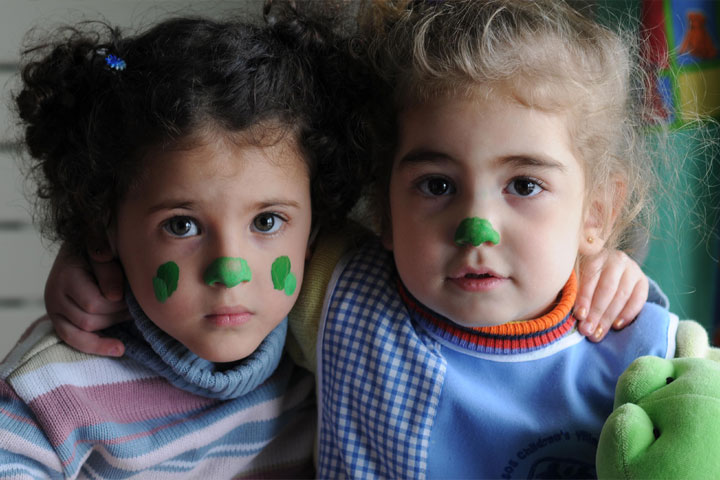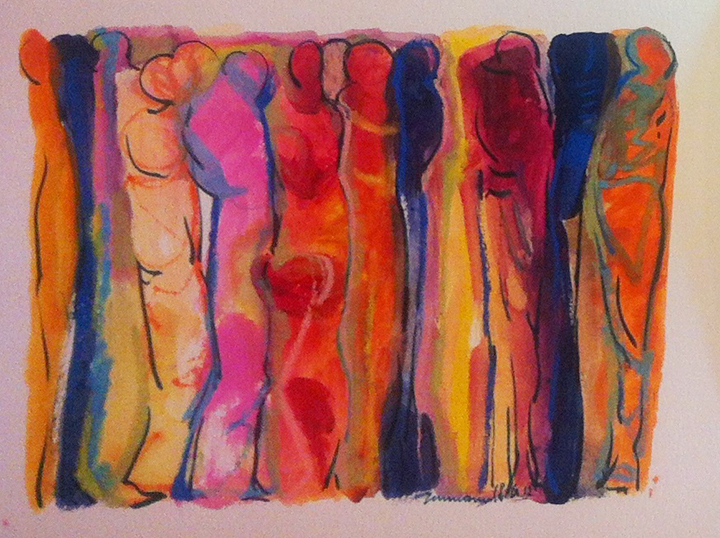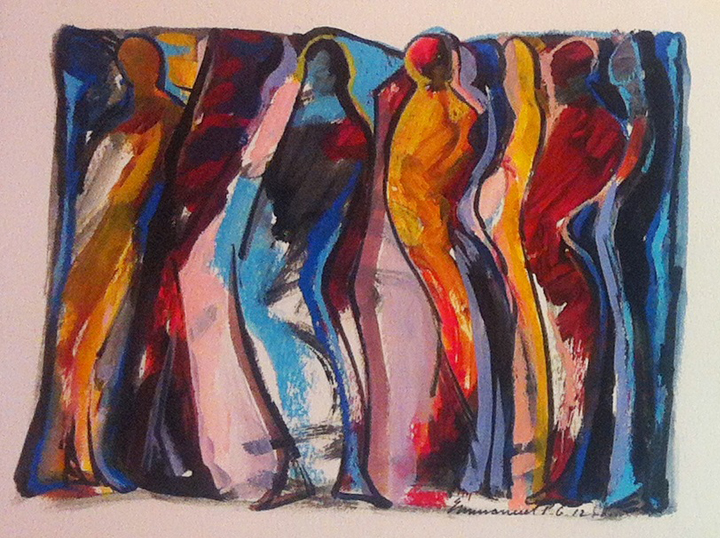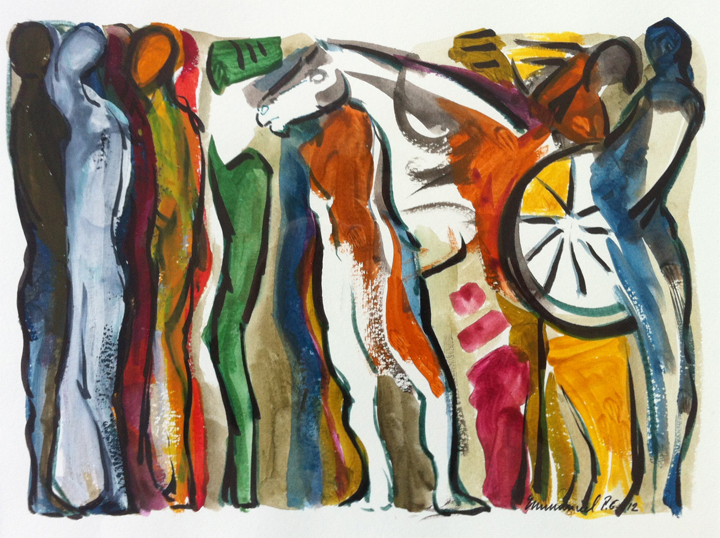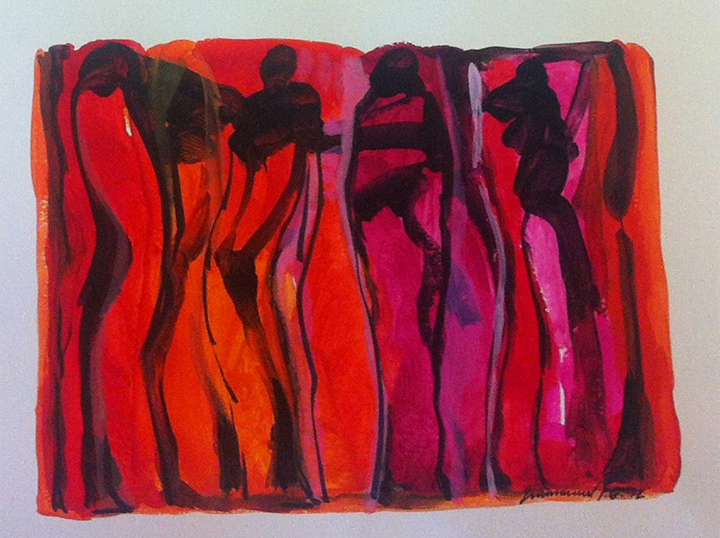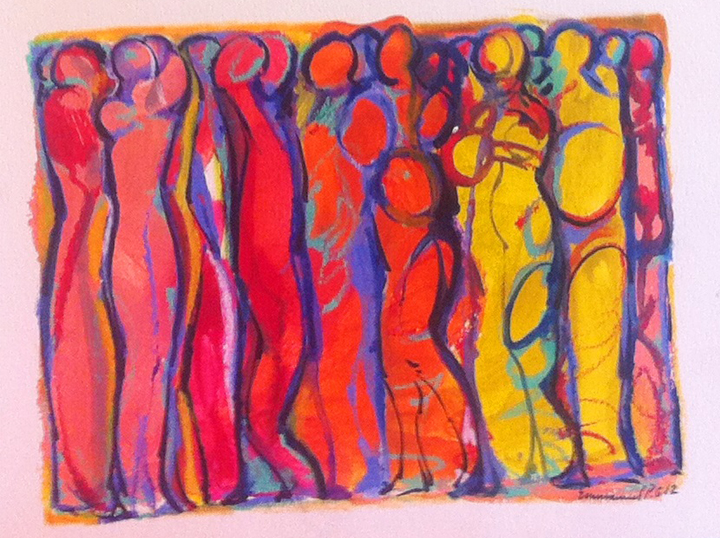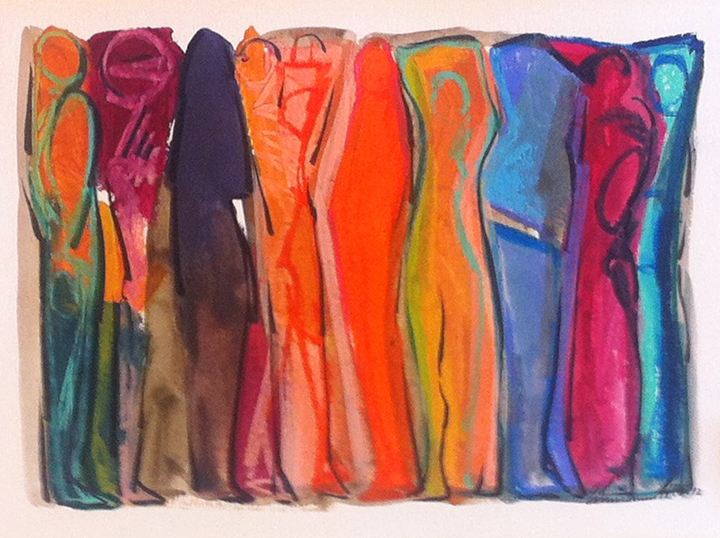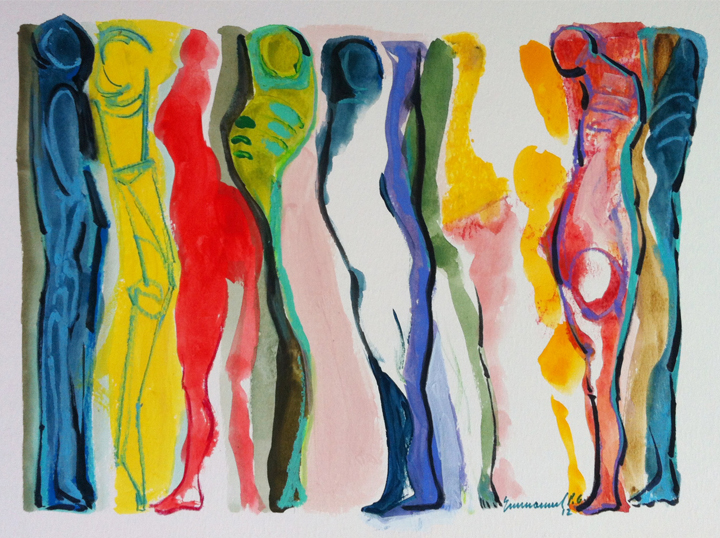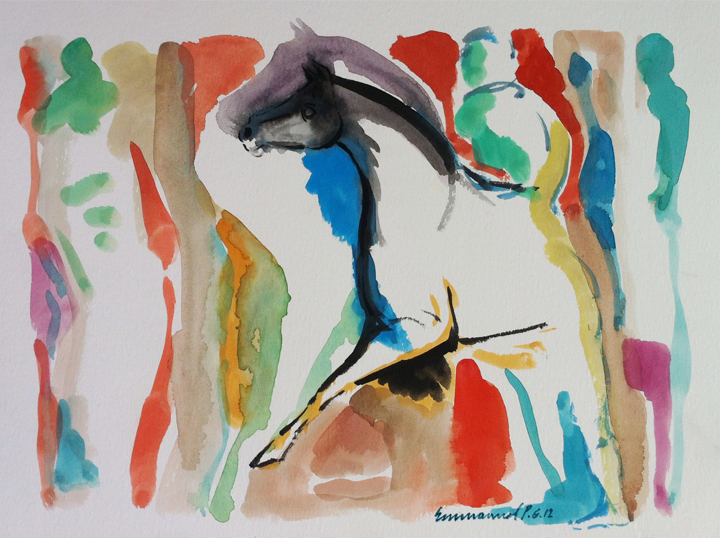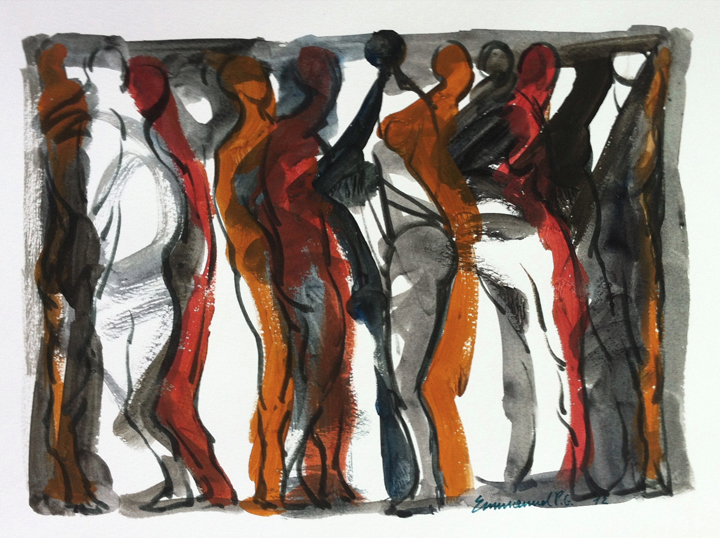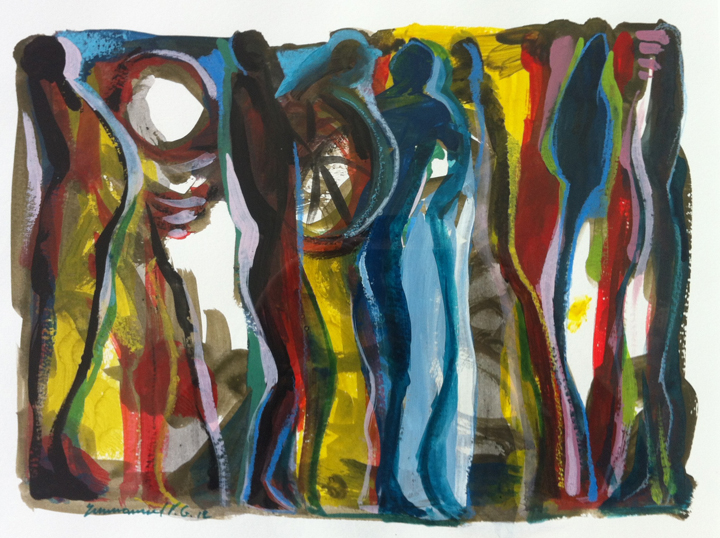Emmanuel Guiragossian
SOS-Edition 2012
10 original watercolour paintings
39 x 29 cm
Sold out
Emmanuel Guiragossian was born in 1954 in Beirut. As the eldest son of the expressionist Paul Guiragossian, he belongs to the sixth generation of an artistic family of musicians, icon painters and painters. The life story of his grandmother Rahel, who had survived the Armenian genocide and several wars, influenced Emmanuel Guiragossian’s perception of life already during his early years. It also led him to the open drama visible in his later works.
As a student, he was at the Académie de Beaux-Arts in Paris as well as at the Michelangelo Academy in Florence. Afterwards, in 1974, Emmanuel Guiragossian was awarded a scholarship for the Hochschule für Bildende Kunst in Dresden. In 1979, the artist returned to Lebanon where he held a professorship at the A.L.B.A. academy and at the American University of Beirut until 1984.
Emmanuel Guiragossian has had numerous solo exhibitions worldwide. Since 1980, the artist and businessman has taken over the consulting for many important projects related to the development of cultural spaces and museums in the Arabic world. In order to fulfill a dream of his father, Emmanuel Guiragossian founded the first museum of contemporary art in Lebanon.
Emmanuel Guiragossian lives with his family in Dresden and Beirut. In 2007, he opened his gallery EMMAGOSS in the barock quarter of Dresden.
SOS Children's Village in Kfarhay, Lebanon
Until the outbreak of the Civil War in 1975, Lebanon was one of the strongest and furthest developed economic powers in the region. After the end of the battles in the early 90s an era of stability began, but again it was interrupted by the conflicts of 2006 and 2011. The poverty rate has risen strongly in many parts of the country. Especially non-skilled workers, unemployed people, women and young people are affected by poverty. There are about 1.3 million children living in Lebanon. They seriously suffer from the social, political, economic and also emotional consequences of the Civil War.
The SOS Children’s Villages has been operating in Lebanon since the mid 60s. Even during the long years of the Civil War, it was active and stood up for the support of children, young people and families. After the Israeli-Lebanese conflict in 2006, the SOS Children’s Villages developed the existing programmes further in order to help children and families suffering from war traumas. At the moment, the SOS Children’s Villages supports altogether about 2200 children and their families.
